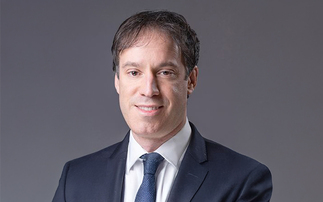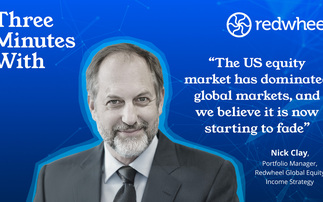Engagement should be the first step before excluding certain sectors from portfolios, according to some of the industry's top sustainable investment managers.
Speaking at a recent roundtable hosted by Investment Week and the SPDR ETF team from State Street Global Advisors (SSGA), the panellists said divesting leaves no clear path for engagement, and that exclusions are not the best method for all sectors.
It comes as 2020 has seen increasing demands from ESG-focused investors to divest from certain sectors or companies.
Francois de Bruin, fund manager of Aviva Investors' Sustainable Income & Growth fund, said "in general, exclusions are a pretty blunt tool".
He explained: "The first reason is you can't really get critical mass. Once you divest, there's always someone down the queue who is going to pick up that stock who might not be an active owner or who might not engage in the same way. The second reason is once you divest, there is no clear path for engagement and to see what the future plan might be."
While Aviva does exclude certain things, and sometimes there are good reasons to do so depending on the fund and client outcome, it prefers to engage as a first rule and exclusion is always a last resort.
Meanwhile, big beta groups are often criticised by activist groups for not excluding certain sectors, but for passive investors, engagement can actually be even more important than for some active players, according to Carlo Funk, EMEA head of ESG investment strategy at SSGA. This is because active investors can always engage and then make up their mind and divest.
Funk used fossil fuel reserve exposure as an example: "Do you want us to completely divest as a firm from everything related to fossil fuels? The other view could be ‘do you actually think that the transition to a low-carbon economy is completely possible without any of the current incumbents?'"
While exclusions at the sector level are clear, they are nuanced by revenue exposure, said Muna Abu-Habsa, director of multi-asset and ESG funds at HSBC Private Banking.
She said: "Some funds might exclude tobacco producers in their entirety, but then they might have some sort of revenue threshold or tolerance level for companies that derive a part of their revenue from tobacco sales."
Abu-Habsa said engagement can work well with certain sectors and industries but it will not be as impactful for others, such as gambling or adult entertainment, where the outcome is restricted by the nature of their business models. "Whereas that might be different for oil companies or oil producers, for example, which we have seen actually move quite positively as a result of engagement."
For Kate Capocci, investment manager at Smith & Williamson, it is a question of educating and explaining the issues to financial advisers and private clients.
"A lot of private clients come in with big sustainable ideas, but don't know where to direct them, and will end up saying ‘just exclude fossil fuels or exclude anything with a carbon intensity above X, Y or Z', which actually isn't a particularly nuanced or effective way to approach that kind of portfolio. There is a lot of education needed within the industry to really consider what we are doing and how we are approaching those kinds of investments."
Keith Balmer, director multi-asset solutions at BMO Global Asset Management, said it all comes down to what the client wants.
"It is very dangerous to tell the client exactly what they should and shouldn't be wanting. The job of product manufacturers is very much to provide a solution to address particular client needs and requirements," he said.
In terms of client communication in this area, Ben Palmer, head of responsible investment at Brooks Macdonald, added: "I think there is nuance in this space. There is no necessarily right way or wrong way of doing this, but every individual strategy has to be very clear and transparent in their reporting and their documentation about what they do and what they don't do.
"Then the onus is on the investor to make sure they do the research to pick things that align with them. Again, it comes back to the headline idea that ESG is not one thing; sustainability can be conceptualised in lots of different ways and we shouldn't group it all together."











